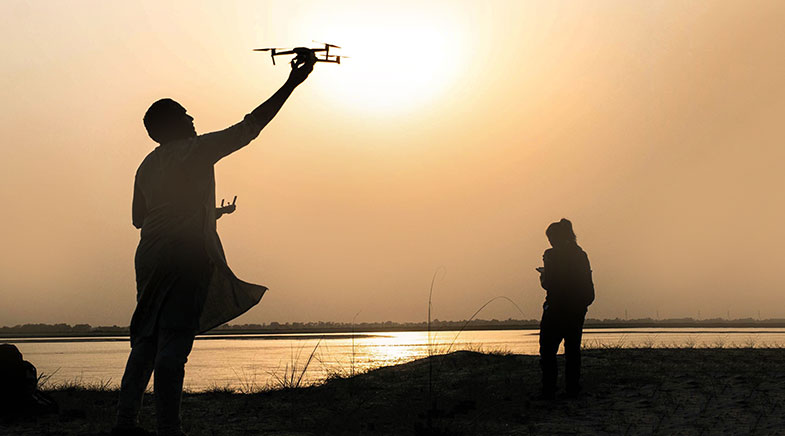Grim news for groundwater levels in north India
-
- from Shaastra :: vol 03 issue 07 :: Aug 2024

Dry monsoons and warm winters spell trouble for north India, a study warns.
North India, beware. Groundwater levels will further deplete in the region as climate change alters seasonal patterns and anthropogenic demands put greater pressure on underground water reserves, a study led by the Indian Institute of Technology (IIT) Gandhinagar states.
The study (bit.ly/water-depletion) assessed the impact of two aspects of climate change — drier summer monsoons and warmer winters — and used hydrological models to predict changes in groundwater levels under various future scenarios. "Any way we look at it, groundwater depletion is accelerating," notes IIT Gandhinagar Professor Vimal Mishra, a lead author. He says major policy changes, especially regarding cropping patterns, are needed to meet the challenge.
The team reviewed historical satellite data that showed groundwater reserves had dipped by 1.5 cm/year over the last 50 years. In 2020-21 alone, the region lost 450 square kilometres of groundwater. The study considered the five wettest and driest monsoon years and noted that while groundwater dipped by 15% in drought years, it rose by 10% in wet years. While the region will be warmer and wetter in the future, the monsoon rain — the primary recharger of groundwater — will be weaker. The study, published in Earth's Future, underscores the occurrence of frequent droughts since 2002.
Mishra highlights the need for urgent policy changes to reduce irrigation demands.
Monsoon rain, when inadequate or not evenly distributed, reduces the recharging of the water table and increases the drawing of water reserves for irrigation. A 10-15% drier summer monsoon, with 1-4°Celsius winter warming, may accelerate groundwater depletion by 6-20%. It cites the example of 2009, which witnessed a 20% reduction in the monsoon rain and a 1°C warmer winter. The groundwater reserves that year fell by 10%.
The paper notes that in the next 15 years, there may be a 1-4°C rise in winter temperatures. A 4% rise in rainfall is predicted till the middle of the century, though it will rise by 14% by the end of the century. "The distribution of that rain is also important. Intense rain episodes do not recharge the water table," says Mishra.
Mishra highlights the need for urgent policy changes to reduce irrigation demands. "Water-intensive crops need to be eased out in favour of dry-land crops," he says. Nitya Jacob, the author of Jalyatra, a book on water management practices, calls for suitable laws. "In the absence of laws for reducing groundwater dependency and increasing recharge potential, not only will reserves deplete, they will also get further contaminated," he says.
Have a
story idea?
Tell us.
Do you have a recent research paper or an idea for a science/technology-themed article that you'd like to tell us about?
GET IN TOUCH














